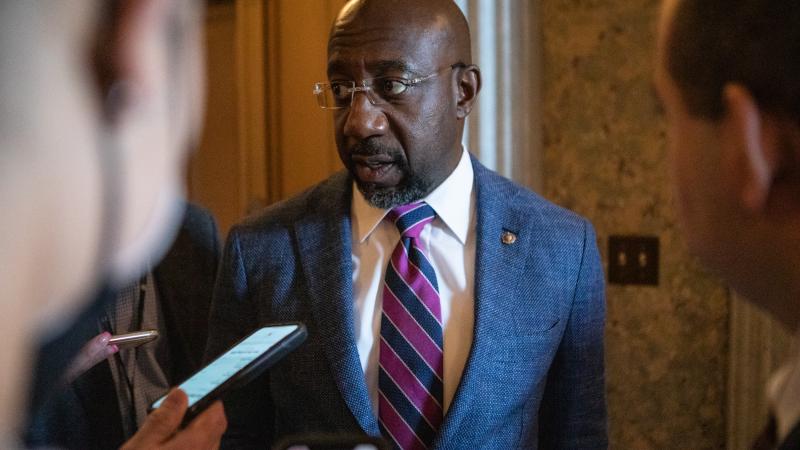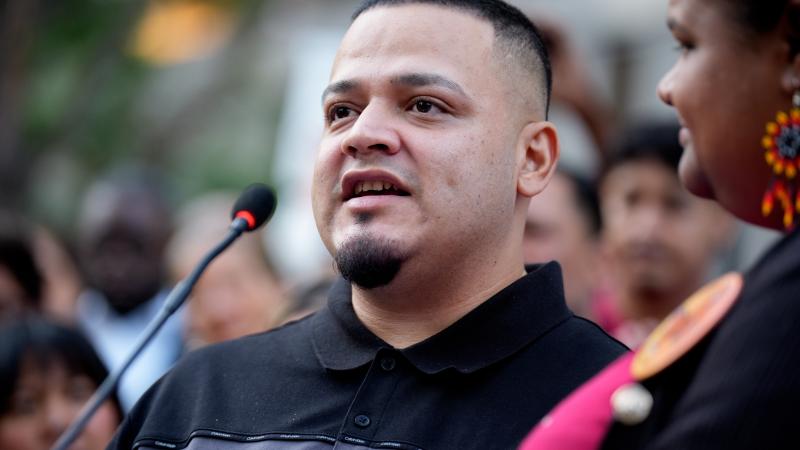Kerik attorney: Jan. 6 panel goal is to 'influence the election' not do 'real investigation'
Timothy Parlatore says select committee rejected former New York City Police Commissioner Bernie Kerik's offer to testify publicly because they prefer "an appearance of noncompliance."
The House Jan. 6 select committee's final report will likely come out in advance of the November 2022 midterms because their "goal is to influence the election," Timothy Parlatore, attorney for former New York City Police Commissioner Bernie Kerik, told Just the News Wednesday.
"They're going to accelerate this so that they can get the report out a few months before the election because their goal is to influence the election, not to actually get to anything of legislative significance," Parlatore said.
Kerik served as an adviser to former President Donald Trump's legal team following the 2020 election.
Parlatore also told Just the News that Mississippi Democratic Rep. Benny Thompson, chairman of the Jan. 6 committee, wouldn't accept Kerik's offer to testify publicly as part of his committee's investigation and has refused to make the transcript public.
"They want an appearance of noncompliance," he said.
Parlatore said the committee "isn't properly formed" to be authorized to conduct any depositions under House rules, given that it lacks a formal ranking member from the Republican Party.
At the time the Jan. 6 committee was formed, "the rules for the conduct of depositions [were] applied to all committees, not just this one," he said. "At the time that all those rules were passed back in January of 2021, they did not yet know what Nancy Pelosi would do later, rejecting the slate that Kevin McCarthy presented to her."
(House Speaker Nancy Pelosi rejected House GOP Leader Kevin McCarthy's choices for the Jan. 6 committee. In return, the California Republican declined to appoint any replacements.)
Parlatore said Kerik agreed to give a public "voluntary interview" to the committee rather than a formal deposition, since there isn't a formal ranking member on the committee, which technically prevents it from conducting a deposition.
Committee interrogators are "not restricted to only the one-hour rounds, they're not restricted to just the two staffers," Parlatore explained.
"I'm only allowed to object to privilege," he added. "It's a lot more free flowing. There's no perjury because you're not under oath, but at the same time lying to a congressional investigation is a crime."
Based on his dealings with the committee, Parlatore said it seemed that its staffers and members were satisfied with witnesses not complying with its subpoenas for documents or depositions.
"They're not doing a real investigation, okay?" he said. "This is not an investigation. They're not actually looking for any of the information that they're asking for. What they are trying to do, they want an appearance of noncompliance.
"When they subpoenaed Bernie Kerik, when I had the first conversation with them, three times, three times they said, excitedly, 'So he's not going to comply.' I didn't say he wasn't going to comply. I said we had issues of privilege that we need to talk through."
Former Trump adviser Steve Bannon became the "poster boy" for noncompliance that the committee wanted, Parlatore said. "They want them to look like they're hiding something, because the reality is, the stuff that they're investigating, if you comply with them, if you give them all the stuff that they are asking for, it doesn't help them.
"That's why Kerik and I did everything we could to give them the stuff. With Kerik, we actually got President Trump to offer a conditional waiver of privilege. He gave a conditional waiver of privilege that would allow us to give the committee everything in Kerik's possession — everything — and then counsel refused to accept the conditional privilege waiver because he didn't want everything."
Parlatore said that Thompson could have agreed to make the transcript of Kerik's voluntary interview public.
"President Trump put out a statement at the time, he says, 'Bernie Kerik wants a waiver of privilege to be able to testify publicly, and I grant that to him,'" Parlatore recounted. "All [Thompson] had to do was agree that at the conclusion of the voluntary interview that the transcript will be provided to [the press] — he refused."
He questioned why the committee wouldn't allow Kerik's testimony to become public.
"Why would you be afraid to let Bernie Kerik's testimony be public," he asked. "Especially when you have been offered a privilege waiver that if you agree for his testimony to be public, you're going to get access to everything — which, by the way, Kerik is working under Giuliani, so you're going to get all of the privileged Giuliani stuff. Don't you want all that?"
Thompson's office did not respond to a request for comment about Parlatore's statements.















